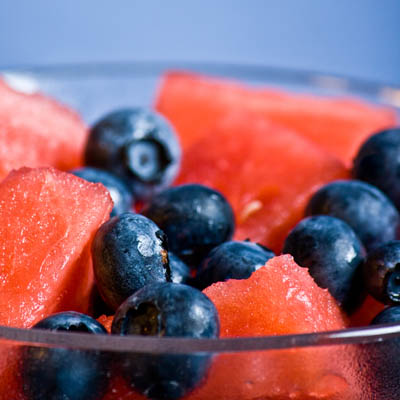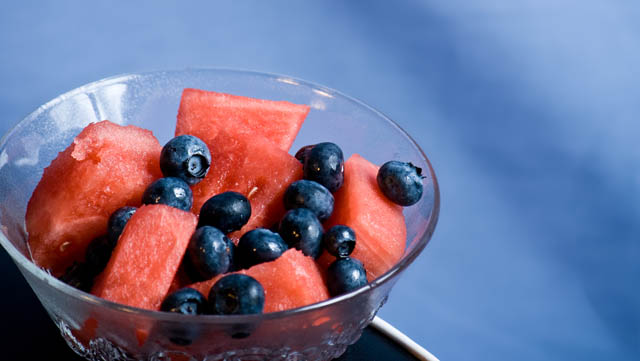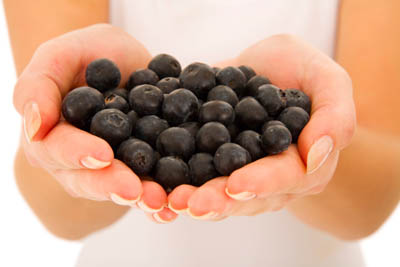Scientifically Speaking: What Do You Mean, ‘Superfood’?
Attention everyone: there is, yet again, another health fad making the rounds, popping up on food packaging and in fast-food establishments around the world.
On top of all the misleading food labels that read “all-natural,” “no sugar added,” or “no artificial flavors or colors,” you can now add “superfood” to your list of ambiguous nutritional claims.
Sure, there really are foods that many nutritionists consider superfoods. But trust me — odds are, these foods won’t come from your nearest drive through or processed, pre-packaged food from the grocery store.
Every superfood you find is going to be a real (unprocessed) food.
What Makes Them So Super?
OK, so you get it: stay away from highly processed foods devoid of important macro and micronutrients. But why go for the superfoods? And how exactly do you find them?
 Truth be told, there isn’t a universally or nutritionally tested way of determining what foods are actually “super.” But many health experts consider any whole food that is low in calories and has a high nutrient density or above-average nutritional benefits as a superfood.
Truth be told, there isn’t a universally or nutritionally tested way of determining what foods are actually “super.” But many health experts consider any whole food that is low in calories and has a high nutrient density or above-average nutritional benefits as a superfood.
These nutritional benefits vary greatly depending upon the particular superfood, but according to the American Cancer Society (ACS), many of these antioxidant-rich foods may help reduce your risk for fatal diseases like cancer. In fact, according to the 2011 ACS Guidelines for Nutrition and Physical Activity for Cancer Prevention, a third of the annual cancer deaths in the United States are caused by poor diet and lack of adequate physical activity.
Where Do I Start?
So now you’re ready to get healthy and start implementing some of these awesome superfoods into your diet. Great! Here are three nutritious, real, and tasty foods that could easily be considered superfoods because of their numerous health benefits. Did I mention they’re all in season?
Blueberries — These sweet and naturally blue berries are crammed with disease-fighting antioxidants, known to help alleviate the damage done by inflammation. Other benefits come in the form of ellagitannin and anthocyanin, both of which are believed to be effective against certain types of cancers, including breast and esophageal cancers. They are great in smoothies or as a sweet pairing with some grilled pork chops fresh off the barbecue.
Red bell peppers — While all peppers are low in calories and are a healthy option for any meal, red peppers — which taste sweeter and aren’t as spicy as other varieties — pack a special nutritional punch. They contain 11 times more beta-carotene than green bell peppers and also give you 240 percent of your recommended daily value of vitamin C. Fajitas, anyone?
Watermelon — Yes, it’s hard to believe, but this tasty summer treat provides some awesome nutritional support for your body. Aside from refreshing you on a hot day, this fruit also delivers significant amounts of lycopene, a carotenoid present in many superfoods. A recent study led by food scientists at Florida State University even suggests that watermelon can be an effective weapon against prehypertension, a precursor to cardiovascular disease.
Is That All?
While this post only has room for three superfoods, I can assure you there’s a whole grocery store full of these nutritional gems (here’s some more, and more). You just have to know what you’re looking for and how to find it. Don’t just wander mindlessly through the grocery store aisles. Go in with a plan — a list even. It’s the best way to avoid the temptation of those pesky processed treats that lack any nutritional benefits (AKA empty foods).
So now you have a little background into what makes a food “super.” Hopefully this has got you thinking about the foods you’re putting in your body and how they might be affecting your long-term health. And remember: whenever you’re in doubt, it’s always best to visit your physician or dietician for the safest, healthiest recommendations.
How About You?
What’s that? You’ve got some of your own superfoods at home? Great! Sound off in the comments and let our readers know what other foods you turn to when you’re in need of a healthy, nutritious boost.
We’re proud to bring you the freshest content on the web! Follow USANA on Twitter, like our USANA Facebook page and enjoy the latest videos on the official USANA YouTube channel.
Learn what USANA is doing to make the world a better place.
Discover what USANA products can do to boost your health today by taking this brief online Health Assessment.




Don’t forget raw almonds and other nuts! Super!
Agree with one comment. Leave pork out as a source of healthy food claims. http://bit.ly/RuK159
Fresh ground Golden flax seeds and RedQuinau.
Ann